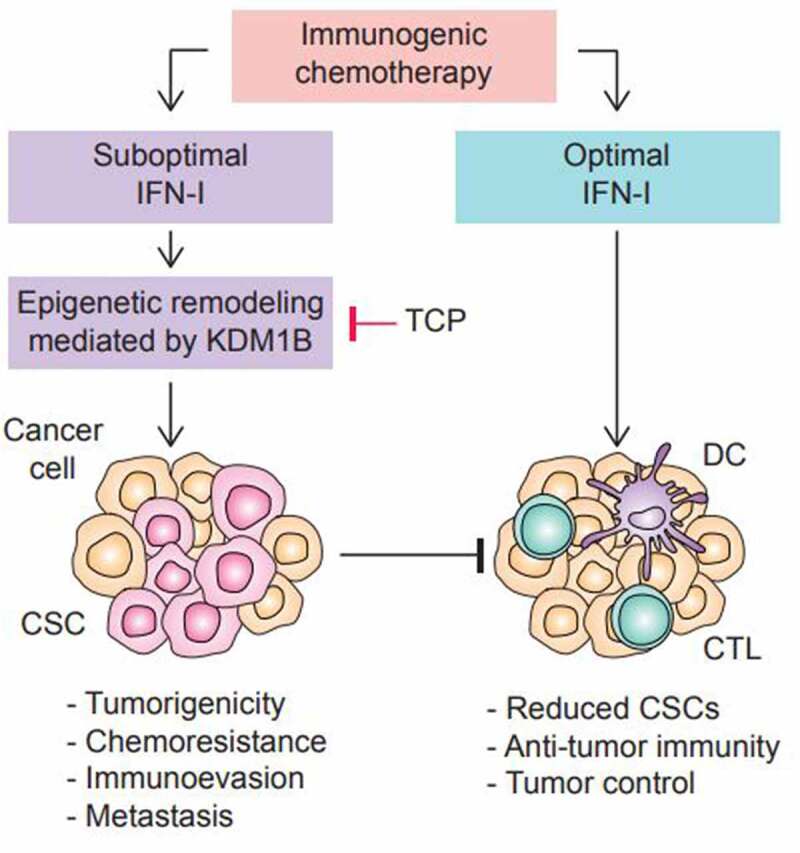Figure 1.

Chemotherapy-induced IFN-I promotes KDM1B-mediated CSCs accumulation and tumor resistance. Chemotherapeutics can induce immunogenic cell death (i.e., oxaliplatin or doxorubicin), resulting in the release of damage-associated molecular patterns (DAMPs), such as type I interferons (IFN-I), that stimulate anti-tumor immunity mediated by dendritic cells (DCs) and cytotoxic T lymphocytes (CTLs). Depending on the dose and timing of the IFN-I signaling, IFN-I induces an epigenetic remodeling mediated by the lysine demethylase 1B (KDM1B) that leads to the accumulation of cancer stem cells (CSCs). These CSCs promote tumorigenicity, chemoresistance, immunoevasion and metastasis. Inhibition of KDM1B with tranylcypromine (TCP) in combination with immunogenic chemotherapy, prevented the accumulation of CSCs and lead to tumor control.
